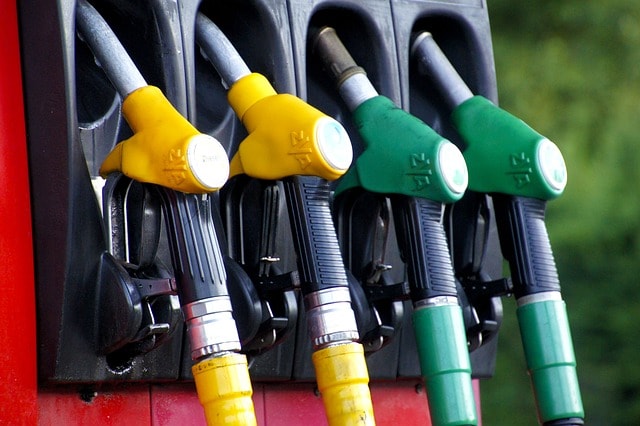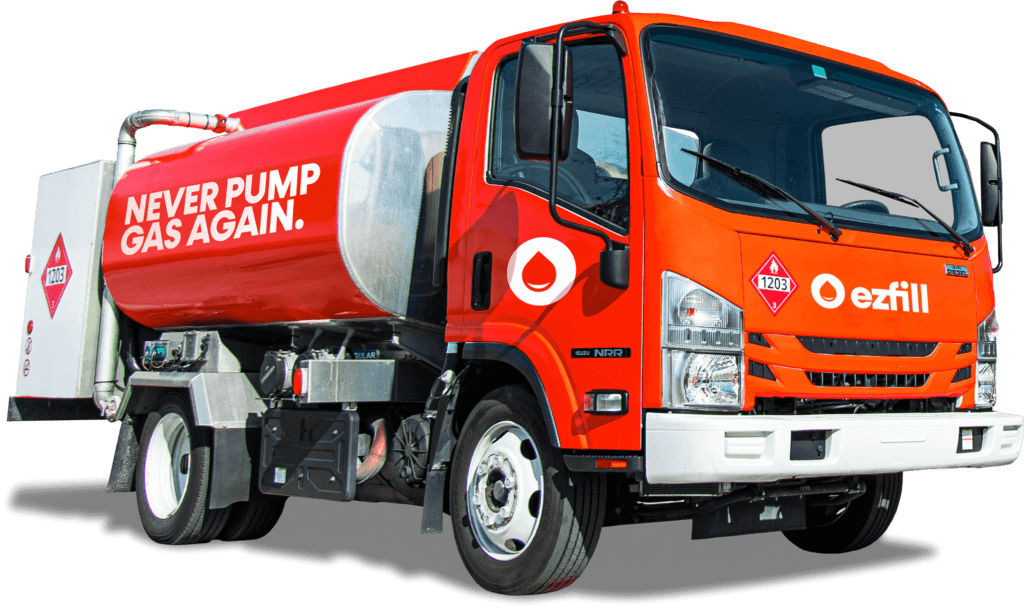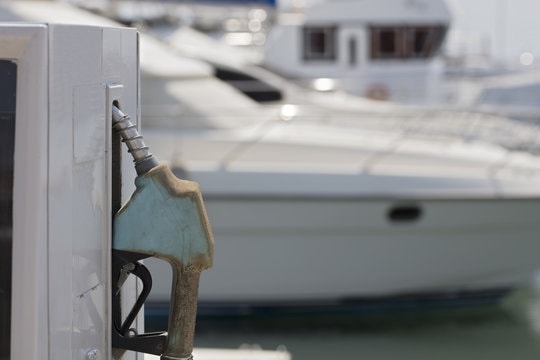Boats typically run on gasoline, diesel, or ethanol mixtures, each impacting engine performance and maintenance uniquely. In this article, we’ll explore the most common boat fuels to help you make an informed decision for your marine adventures. At EzFill, we understand the complexities of marine fuels and provide convenient mobile fuel delivery in Florida, allowing boaters to focus more on the sea and less on refueling logistics.
Key Takeaways
- Boat fuels include gasoline, diesel, and ethanol mixtures, each suited for specific engine types and requiring careful consideration to prevent engine damage and ensure performance.
- Ethanol-containing fuels pose risks like phase separation and corrosion; therefore, older boats or those in storage should use ethanol-free gasoline.
- Mobile fuel delivery services in Florida, such as EzFill, provide convenient refueling options, allowing boaters to focus on their experience rather than fuel logistics.
Understanding Different Boat Fuels
Marine gas fuels are blends of distillates from crude oil. Different types of boat fuel include gasoline, diesel, and ethanol mixtures, each with specific implications for engine types and performance.
Using the correct fuel prevents significant damage to internal engine components. Proper maintenance and avoiding contamination ensure engine longevity and performance.
Regular Unleaded (87 Octane)
Regular Unleaded (87 octane) is the most common fuel for smaller outboard engines. However, its lower octane rating may cause issues in high-performance engines, leading to engine knocking and reduced efficiency.
Boat owners refueling at a gas station should ensure their engines are compatible with boat gas to avoid potential problems.
Mid-Grade and Premium Unleaded (89 or 91/93 Octane)
Higher octane fuels like Mid-Grade (89 octane) and Premium Unleaded (91 or 93 octane) are essential for high-performance boats to avoid engine knocking. These fuels prevent engine damage and ensure peak performance, making them a better choice for boats with high-performance engines.
Considering the engine’s fuel and oil requirements is important when choosing these fuel types.
Ethanol Mixtures (E10)
E10 fuel contains 10% ethanol and is widely available and inexpensive, offering cost savings for small personal boats. Ethanol attracts water, leading to phase separation and potential engine damage in humid climates like Florida’s. Understanding the risks and practicing proper maintenance is vital.
Ethanol-Free Gasoline
Ethanol-free gasoline is especially recommended for boats older than 15 years. Before using ethanol-free gasoline in marine engines, refer to the owner’s manual to ensure compatibility. Ethanol-free fuel is typically available at busier marinas and service stations near lakes and rivers. It comes in different octane levels, such as 87 octane or 92 octane, with blends like REC-90 being popular choices.
Ethanol-free gasoline helps avoid ethanol-related issues and is preferred for older boats or those in storage. This type of fuel prevents the corrosive effects of ethanol, ensuring better performance and engine longevity.
Choosing ethanol-free gasoline can be wise to maintain vessels in optimal condition.
Diesel Fuel
Diesel fuel is primarily used in larger boats and inboard engines. Larger inboard motors typically rely on diesel for operation, benefiting from its energy efficiency and lower volatility than gasoline. Marine diesel contains additives to stabilize and improve shelf life, combat moisture, and prevent microbial growth in the fuel system. These characteristics make marine diesel a crucial choice for maintaining the efficiency and longevity of inboard engines.
Marine diesel includes robust anti-corrosive additives essential for the marine environment, making it suitable for larger vessels that require more power and reliability. It offers better performance and lower operational costs over time.
Biodiesel (B20)
Biodiesel (B20) is a blend of 80% petroleum diesel and 20% bio-oil, recognized for its reduced environmental impact. This fuel is suitable for certain marine applications due to its environmental benefits and compatibility with diesel engines.
Biodiesel (B20) offers a more sustainable option for those looking to minimize their ecological footprint than traditional petroleum fuels.
Special Considerations for Marine Engines
Marine engines require careful consideration when selecting fuels. Different boat types need specific fuel formulations to ensure optimal engine performance, leading to improved fuel efficiency and overall performance.
Outboard motors may require fuel specifically designed to operate efficiently in marine environments. Ensuring proper maintenance and avoiding the wrong gas type can prevent severe engine issues.
Fuel Tank Vent System
A properly designed fuel tank vent system is crucial to avoid pressure build-up in fuel tanks. Maintaining a fuel tank at nearly full capacity reduces the likelihood of phase separation by minimizing space for moist air and condensation. Conversely, leaving a tank almost empty increases the risk of phase separation due to moisture accumulation from air exposure.
Ensuring a well-maintained vent system helps avoid issues.
Fuel Filters and Clogged Fuel Lines
Fuel filters are essential for preventing contaminants from damaging the engine and should be checked regularly. Ethanol can act as a solvent, loosening resins and dirt in older fuel tanks, which can lead to filter clogging. Additionally, ethanol can cause damage to rubber and plastic components in fuel systems, leading to potential leaks.
Regularly checking fuel filters and monitoring for water accumulation in the tank can mitigate phase separation.
Mixing Oil with Fuel
The purpose of adding oil to gasoline in boat engines is to lubricate engine parts and ensure smoother operation. For most new personal two-stroke outboard motors, the recommended oil-to-fuel mixing ratio is 50:1. Finding the proper oil-to-fuel mixing amounts for an older used boat requires checking the owner’s manual. Special oil is required when mixing with fuel for two-stroke outboard motors.
Most modern two-stroke outboards have an oil reservoir and pump system for mixing oil and gasoline. Incorrect oil-to-fuel mixing in two-stroke motors can lead to serious internal damage. Adhering to the recommended oil-to-gas ratio avoids potential engine damage.
The Impact of Ethanol on Boat Engines
Ethanol’s impact on boat engines can be significant. Using E15 fuel in marine applications risks severe damage to fuel system components. The general rule for marine fuel is to avoid ethanol-containing fuels, especially those with high ethanol content.
Using an additive like Star Tron Enzyme Fuel Treatment can help protect engines from the negative impacts of E10 fuel.
Phase Separation
Ethanol in marine fuel attracts water, which can lead to phase separation. This reduces engine performance, causes corrosion, and dilutes gasoline. If a boat is docked for more than ninety days, it is recommended that the ethanol-gasoline tank be drained.
Understanding and preventing phase separation is key to maintaining efficient engine performance.
Corrosive Effects
Ethanol can cause corrosion of rubber and fiberglass materials in fuel systems. A common issue with E10 fuel is the corrosion of fuel lines and the possible clogging of these lines.
Protecting engines involves using ethanol-free gasoline or regularly inspecting and replacing components susceptible to ethanol damage.

Choosing the Right Fuel Based on Boat Type
Choosing the right fuel for your boat depends on several factors, including the engine type and the manufacturer’s recommendations. Adhering to these recommendations is crucial for optimal performance and avoiding potential damage. Different types of fuel and oil may be required based on the size and horsepower of the boat, influencing fuel needs.
Selecting the correct fuel enhances engine efficiency, reduces maintenance costs, and extends the engine’s life.
Outboard Motors
Outboard motors typically operate on unleaded fuel, with the ideal choice being ethanol-free gasoline or E10 gasoline with a maximum ethanol content of 10%. Two-stroke marine engines require mixing oil with fuel, specifically oil that is TC-W rated. Diesel outboard motors are more powerful and efficient, using less fuel than gasoline engines.
Following the owner’s manual ensures the use of the correct fuel and maintains the manufacturer’s warranty.
Inboard Gasoline Engines
Inboard gasoline engines often require higher-quality fuel to avoid performance issues and ensure efficiency. Fuel that meets specific performance standards is essential for maintaining the efficiency of four-stroke engines. Adhering to the fuel and oil specifications provided by the manufacturer is crucial for optimal engine performance and avoiding costly repairs.
Understanding these requirements helps select the appropriate fuel to keep engines running smoothly.
Larger Boats and Diesel Engines
Diesel fuel offers more torque and horsepower and a longer lifespan for engines, and due to these advantages, it is generally preferred for larger vessels. Diesel fuel has about 10% more energy potential than gasoline, enhancing performance in larger boats. Although diesel fuel is more expensive per gallon, it is up to 10% more efficient, potentially reducing overall fuel costs for boat operators.
Larger vessels benefit from diesel fuel’s higher energy density, leading to fewer refueling stops and lower operational costs. Diesel engines’ durability and better fuel efficiency make them the preferred option for larger boats.

Fuel Delivery Services in Florida
Fuel delivery services offer significant convenience for boaters, eliminating the need to refuel at a gas station. This is particularly advantageous in Florida, with its extensive waterways and boating culture. Services like DRIVE Roadside provide fuel delivery in Miami, FL, delivering various fuels such as gas, petrol, and others, often with same-day service.
Using mobile fuel delivery services ensures the right fuel for boating needs.
Mobile Fuel Delivery Service
EzFill is a mobile fuel delivery service that brings fuel directly to customers’ vehicles without requiring them to visit a gas station. This service eliminates unnecessary fuel transfers and underground tanks, providing professional service directly at customers’ locations. EzFill offers a user-friendly app for scheduling and tracking fuel deliveries, making it easy for boat owners to ensure they have the right type of fuel for their needs. Licensed and certified technicians, referred to as eztechs, deliver fresh fuel from the source directly to customers.
Using EzFill’s mobile fuel delivery service in Florida can save time and reduce the hassle of refueling. The convenience of direct fuel delivery allows more focus on enjoying time on the water rather than worrying about fuel logistics.
With services expanding to cities like Orlando, Jacksonville, Tampa, and Fort Lauderdale, EzFill is becoming a go-to option for many boaters across the state.
Setting Up Refueling Programs
Setting up refueling programs helps maintain a consistent and reliable vessel fuel supply. Services like EzFill offer convenient mobile refueling options that save time and reduce hassle. EzFill’s Customer Support Team assists in setting up refueling programs for business fleets, ensuring boats are never caught without fuel.
Regular refueling programs enhance the boating experience by providing peace of mind and ensuring that boat owners’ fuel needs are always met.
Contact EzFill
Choosing the right fuel for your boat is essential for maintaining optimal performance, extending engine life, and minimizing environmental impact. It is crucial to understand the different types of boat fuels, from regular unleaded to diesel and biodiesel, and their specific implications for various engine types. Special considerations for marine engines, such as fuel tank vent systems and proper oil-to-fuel mixing, play a significant role in engine maintenance and performance. Ethanol’s impact on boat engines, including phase separation and corrosive effects, underscores the importance of selecting ethanol-free gasoline when possible.
Fuel delivery services in Florida, like EzFill, offer convenient solutions for boat owners, ensuring they always have the right fuel type. By adhering to manufacturer recommendations and considering mobile fuel delivery options, boat owners can enjoy a smoother, more efficient boating experience. Contact us today for the fast and efficient boat fuel solutions you need to keep moving forward.
Frequently Asked Questions
What is the best fuel for outboard motors?
Ethanol-free gasoline is the best fuel for outboard motors, as it helps prevent engine issues. However, E10 gasoline with up to 10% ethanol is an acceptable alternative. Prioritizing these fuel types will ensure optimal performance and longevity of your outboard motor.
Why is diesel fuel preferred for larger boats?
Diesel fuel is preferred for larger boats due to its superior torque and horsepower, extended engine lifespan, and enhanced fuel efficiency. These qualities make it more suitable for the demands of larger vessels.
How does ethanol impact boat engines?
Ethanol can adversely affect boat engines by attracting water. This may cause phase separation and lead to fuel system corrosion and potential engine damage. To prevent these issues, it is crucial to manage the ethanol content in fuel.
What are the benefits of using mobile fuel delivery services?
Using mobile fuel delivery services offers significant convenience. They deliver fuel directly to your location, saving time and eliminating the hassle of refueling at a gas station. This service enhances efficiency and allows for a more streamlined refueling experience.
How can boat owners set up regular refueling programs?
Boat owners can establish regular refueling programs by utilizing services such as EzFill, ensuring a consistent and reliable fuel supply. This approach facilitates efficient fuel management and enhances operational readiness.


